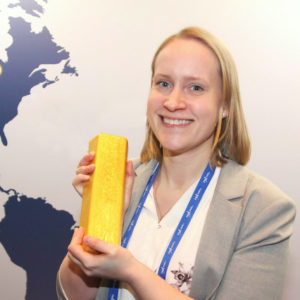Dr. Melissa Anderson
Melissa is a geologist, researcher, and deep-sea explorer. She found her passion for geology at Brandon University (BU) after taking an Introduction to Earth Sciences course with Dr. Simon Pattison in 2006. With encouragement from her BU professors, Melissa gained work experience in mineral exploration in northern Canada during the summers, where she developed an interest in ore deposits.
After completing her B.Sc. Hon. in Geology in 2010, she completed a M.Sc. at University of New Brunswick in 2012 with a focus on lithium-tantalum resources. This was followed by a PhD at the University of Ottawa where her research focused on understanding the tectonic controls on submarine volcanism and ore formation at hydrothermal vents (i.e., hot springs). At this time, she pioneered new approaches to remote-predictive geological mapping of the seafloor at regional scales (1:100,000–1:500,000) by modifying techniques used in planetary sciences.
During her PhD, Melissa also spent several years as a visiting researcher at the GEOMAR Helmholtz Centre for Ocean Research in Germany. Melissa completed her PhD in 2018 and began a tenure-track position at the University of Toronto, continuing this research and leading the new Mineral Resources and Tectonics lab. She has participated in five international multidisciplinary sea-going expeditions to the western Pacific and northern Atlantic oceans. Her current research focuses on three themes: 1) Improving the models of the underlying geodynamic factors that control the distribution of active hydrothermal vents in diverse tectonic environments; 2) Developing new approaches for exploring for inactive vent sites that cannot be located using traditional methods; and 3) Transferring knowledge gained from the seafloor to enhance exploration models for ancient deposits on land.
Melissa credits her BU professors for providing her with the knowledge, tools, and encouragement to follow her dreams.
Melissa received the Distinguished Young Alumni Award in 2020.

